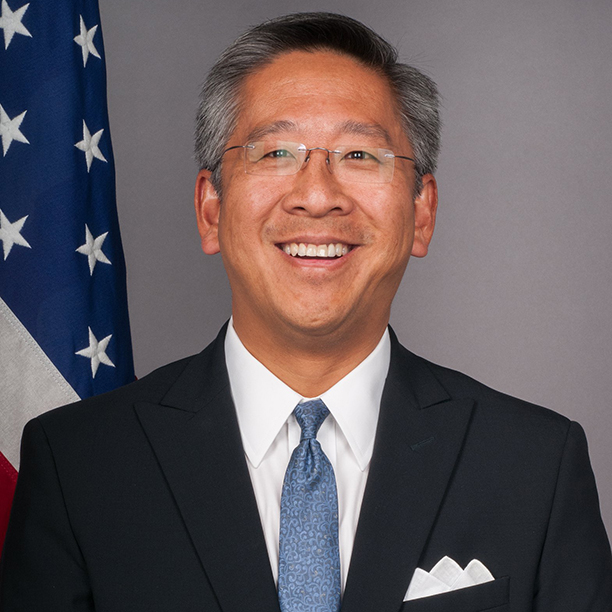From the Peace Corps to the State Department, Donald Lu ’88 *91 Embraces a Global Career
“I loved the stuff outside the classroom,” Lu said. “I was in Student Government, the Student Volunteers Council and wrote for the Prince. I suppose that’s where I figured out that my real passion was in working on community issues.”
Upon graduating in 1988, Lu leapt at an opportunity to join the Peace Corps, a decision he describes as atypical at the time (“I graduated at the height of the Wall Street boom. … All of my friends were going off to make a lot of money in New York”).
Stationed in Sierra Leone, Lu worked as a rural water-supply volunteer, helping villagers restore wells and build latrines. “It was a great experience in learning about self-reliance and growing up,” he said. “There weren’t any volunteers in my village, so I had to drive several miles to see another American.”
After returning to the U.S. in 1990, Lu pursued his masters degree in public affairs at the Woodrow Wilson School. Graduating in 1991, he joined the U.S. Department of State and was stationed in Peshawar, Pakistan, for two years, where he met his wife, an aid worker.
“I was very lucky just by chance to end up there,” Lu said. “Today it’s one of the most dangerous assignments we have in the world, but when I was there it was relatively normal.”
At this moment, Lu began to define his focus towards former Soviet bloc nations. Following his post in Pakistan, Lu was stationed Georgia for two years, where he said his experience learning Russian as an undergraduate was crucial to his success. “[Learning Russian] really had a profound effect on my career,” Lu said. “I fell in love with the language, the literature.”
Since then, Lu has held state department posts in India, Kyrgyzstan, and Azerbaijan. He also served as the ambassador to Albania for four years starting in 2014. He was sworn in as ambassador to Kyrgyzstan Sept. 18.
“I have loved every moment of my 29 years in government and would not trade them for the world,” Lu said. “I often tell young people that it is a great life for people who are seeking adventure.”
Looking to the future, Lu believes the state department faces a particular set of challenges in the 21st century.
“What we need today is a lot more young people who understand how to communicate with young people around the world,” he said. “We struggle with that in the state department: trying to use modern messaging tools like Snapchat.”
“We know that extremist groups are super good at using these new forms of technology to spread their messages to recruit terrorists,” Lu added. “We really need to compete in that arena, and we need more young people to help us do that.”












No responses yet